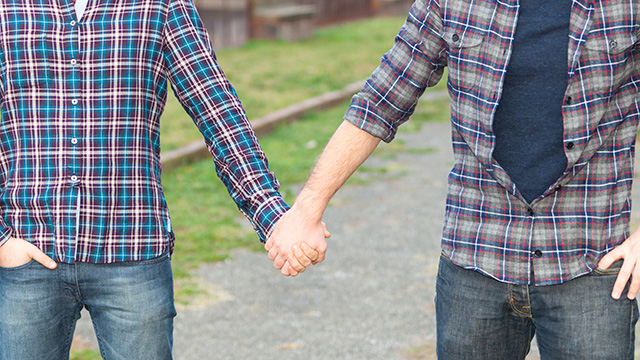SUMMARY
This is AI generated summarization, which may have errors. For context, always refer to the full article.

THE HAGUE, The Netherlands – Two-thirds of Europe’s lesbian, gay, bisexual and transgender (LGBT) community are still afraid to show their sexuality in public and a quarter have been victims of physical or verbal attacks, an EU report said on Friday, May 17, the International Day Against Homophobia.
“Fear, isolation and discrimination are everyday phenomena for the LGBT community in Europe,” the director of the European Union’s Agency for Fundamental Rights (FRA), Morten Kjaerum, wrote in the report.
The online survey, described as the largest of its kind, questioned around 93,000 people in the European Union’s 27 member states plus Croatia, which is to join the bloc in July.
Just over a quarter or 26% of the respondents said they had been physically or verbally assaulted over the last 5 years.
Transgenders suffered particularly, with 28% saying they had been attacked or threatened more than 3 times in the last 12 months because of their sexuality, the report said.
Some respondents said even in countries traditionally considered to be tolerant, attitudes were worsening.
“My situations of harassment/discrimination/violence are mainly random acts of verbal aggression,” a 27-year-old gay Belgian wrote.
“The situation is worse now than it was, for example, 4 years ago.”
In The Netherlands, the first country in the world to legalize gay marriage in 2001, almost 20% of those taking part said they felt discriminated against when going to sport clubs or hospitals, looking for an apartment, going out at night, or dealing with banks.
The average figure across Europe was 32%.
Many said they were afraid to go to the police, including in France where the beating of a gay couple in April hit the headlines after pictures of the bloodied face of one of the victims spread across social media.
“(I am) reluctant to report anything that might indicate that I am gay, as I know (the police) just dismiss everything,” a 42-year-old Frenchman said.
EU Commissioner for Justice and Fundamental Rights Viviane Reding told journalists in The Hague that the report showed “that things are not going right”.
“The legislation in place in member states is not really applied in practical terms and LGBT people are afraid to go to court or to the police because they’re afraid to be discriminated against a second time,” she said.
“There is a lot of nationalistic, populistic thinking behind all this,” she said.
There are wide disparities between EU countries, with less discrimination and violence in the Benelux countries and Scandinavia but also in the Czech Republic and Spain.
Nevertheless, a 32-year-old Czech lesbian said, “For me, the most alarming discrimination experience is in health.
“I feel strong enough to deal with street harassment now, but I feel upset about having to justify my lifestyle to every doctor.”
Two-thirds of respondents and three-quarters of gay men said they were afraid to show their sexuality in public.
The FRA report noted that discrimination often begins at school, where two-thirds of respondents hid their sexual orientation.
“Ten years later, I still consider being bullied at school the worst form of homophobic abuse I’ve ever been subjected to,” said a gay Maltese man, 25.
“The constant insults for being effeminate (‘and therefore gay’) were unbearable at school, and not much action was taken by the teachers against the bullies! Bullying forced me to remain in the closet until I reached the age of 18.”
Around 300 politicians and experts met in The Hague on Friday to discuss measures to fight homophobia within the EU.
“Member states must take care that LGBT students feel secure at school, given that is where LGBT people’s negative experiences, social prejudice and exclusion often begins,” the FRA said.
FRA head Kjaerum said that many were hurt by jokes about others’ sexuality.
“One of the good places to start would be to stop making jokes, around the lunch table at the workplace, in schools, in the canteen about LGBT people,” he told AFP.
“There may be one LGBT person around the table that may feel offended, scared and you increase the level of fear. So we can all do better,” he said.
The United Nations (UN) has launched its own education campaign, with Secretary General Ban Ki-moon reassuring the world’s LGBT community: “You are not alone.”
Rupert Colville, spokesman for the UN’s Office of the High Commissioner on Human Rights, said in Geneva that the report showed that “discrimination is still very much there”.
“I’m not that surprised by the figures that have come out in the EU study,” he told journalists.
“But they are shocking, and clearly there’s a very long way to go in removing all forms of discrimination targeted against LGBT people.” – Rappler.com
Add a comment
How does this make you feel?
There are no comments yet. Add your comment to start the conversation.